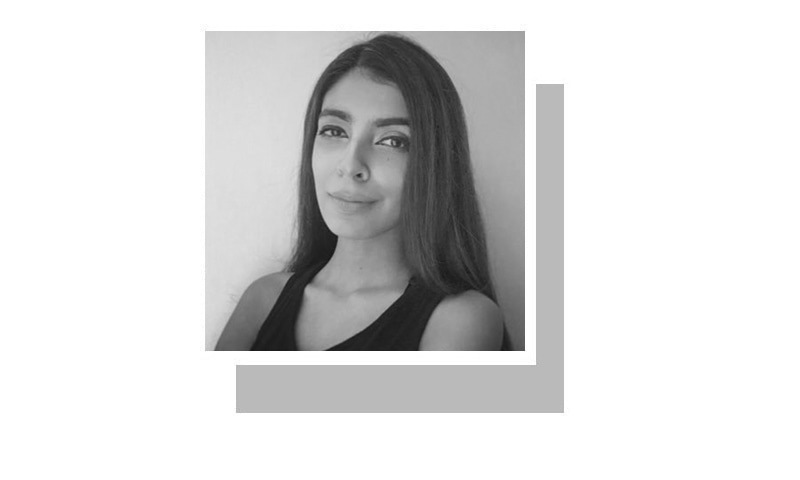IT took a few seconds. He rode up on his motorcycle right next to me, reached out and grabbed my behind. He lingered and made a kissing sound. He didn’t particularly speed up when he had done what he wanted. He wasn’t really trying to get away. In fact, he turned around and waved at me.
Like children say goodbye after a playdate. I was his amusement, a toy. An entitlement.
What I’m sharing is neither novel nor unique. This is not the first time. It will not be the last. And whenever it happens, it feels just as dehumanising, just as degrading, just as disgusting.
By the time I unfroze to chase after him, it was too late. He probably laughed to himself. Or maybe he didn’t notice me run. It is entirely possible I wasn’t the first woman he violated that day. He might have done worse before the night was over. Exploits for him, and brazen robberies of our sense of safety. That’s all it really takes when it hangs by a thread, gnawed away by newspapers awash with stories of women killed, raped, maimed and beheaded.
When I realised with horror that I had no means of identifying him, I put the story out on Twitter trying to crowdsource ideas about how I could. The answer seemed obvious: CCTV footage. I let out a breath. This is a cantonment area and there were cameras everywhere on this street. Some people told me to immediately find out if there was a Safe City Camera in the vicinity. Don’t worry, seemed to be the message. It was all on tape.
Except it wasn’t.
The grainy CCTV footage from private cameras was useless, and I suppose, the Punjab Safe City Authority is also under the same impression as I was of how secure Lahore Cantt is. They didn’t have one of their cameras in that lane. Over 8,000 cameras have been installed in this city. A helmet-wearing motorcyclist has, so far, evaded all of them. Heavy surveillance is no match for years and years of unchecked sexual violence.
Heavy surveillance is no match for years of unchecked sexual violence.
The police contacted me a few hours after the crime. I would be lying if I said they didn’t make me feel better. There was a kindness I had not expected, and a gendered sensitivity that I was surprised by. I spoke to three police officials designated to Cantonment. Not one of them asked me what I was wearing, why I was walking alone, why I was making such a big deal out of it because something worse had not happened. I can only hope this is a standard operating procedure, and not something that my privilege, profile and social media attention on the case enabled.
But over a week later, I have reassurances. I don’t have a culprit. Sure, they are under-resourced, overstretched but why aren’t more effective mechanisms in place for a crime that affects over half the population of the country every single day?
Then I think of Noor Mukaddam. There is forensic evidence. There are phone records. There is CCTV footage. There is attention. There is privilege. There is press. There is protest. And there is a still a pall of fear justifiably hanging over all of us because the police and prosecution have failed us all so many times before.
I got calls telling me to be thankful that I had not been physically hurt, and I am. Like all women, I’m never more than one wrong turn away from being hurt. It seems particularly jarring, considering that a 25-year-old doctor was shot and killed in a carjacking just this week in the same city. Will one of those Safe City Cameras capture her final moments on film? And even if it does, what if they had helmets on? As I have grimly learnt, licence plates evade the cameras — so what are these 8,000 lenses even looking at? Is all this heavy-handed surveillance just there for visual deterrence?
The fact is that the police and prosecution are the short-circuit to our deep-rooted issues. The man who assaulted me turned around to wave because he knew nothing would happen to him. The men who filmed themselves assaulting a woman at a national monument should have been ducking for cover, but they smiled for the camera. They should not have that comfort, but our system offers it.
I have been in human rights for a long time now, so my instinct for accountability is cynical, even when there is visibility and clout. But I’m angry. Women are constantly being bombarded with the same message — that they are ‘different’ and not the same as men, and when they step out of their home or step out of line, they are put back in their place, through violence, or worse, erased altogether to not cause any more ‘trouble’.
Far worse happens to women far worse off than me. But we are all told that there is safety in numbers, in being chaperoned by a man like children, in being quiet, in adjusting, in not fighting back. As if that’s where the blame lies.
And if that is so, then being a visible woman does not bring safety. Being an invisible woman does not bring safety. Being a woman of means does not bring safety. Being a woman is no means to bring safety.
The writer is a human rights activist.
Twitter: @Rimmel_Mohydin
Published in Dawn, October 3rd, 2021











































Dear visitor, the comments section is undergoing an overhaul and will return soon.